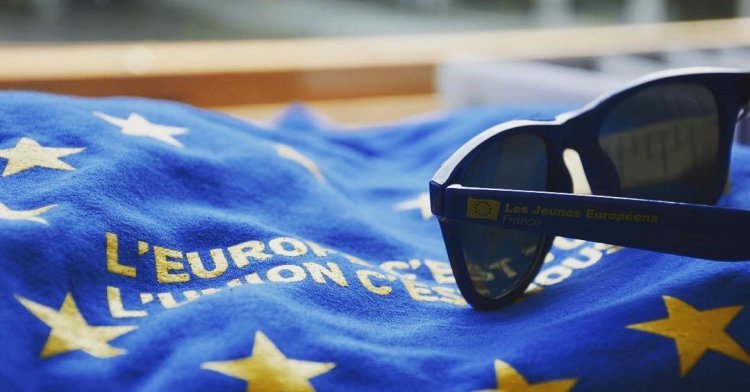The French objective is to block the radical Islamist groups from reaching the capital and over-run the central Malian government. France is seeking to re-instate security in the Sahel region and to prevent the transformation of Mali into a radical Islamist state that could pose a threat to the security of Europe and the Mediterranean. Although the French deployments have been quick and decisive in aiding the African forces on the ground, many have questioned why France is the only global actor that has committed itself to intervene in Mali. Given that the security of Europe and the Mediterranean is a common concern for many actors within the international fora, particularly for all EU member states, their absence on the ground and lack of political pronouncements vis-a-vis the Malian case merits investigation.
Every story has a beginning
The Tuareg rebellion in early 2012 led by the National Movement for the Liberation of Azawad (MNLA) was the instigating factor, which set the ball rolling for a series of events that brought turmoil in northern Mali. Following a brief coup d’état that gave rise to the declaration of independence of northern Mali, a number of radical Islamist groups including Al Qaeda in the Islamic Maghreb (AQIM) turned against the MNLA, which they had previously helped in defeating the central Malian government, and took control of the north. Consequently, the radical Islamists have been advancing upon the government-controlled areas of the south with the aim of establishing Sharia law in Mali. This is where French concern lies, as France fears that the rise of an Islamist state in Mali could serve as a breeding-ground for Islamic radicalism and terrorism directed against the southern borders of the Euro-med region and towards a rather exposed Europe.
Marching for a ’Just War’
One cannot help but notice how the French intervention in Mali, comes as the third military campaign for France in the African continent in less than two years. France was the only actor alongside the UK, which had coordinated definitive military action in terms of airstrikes against Gaddafi’s forces during the Libyan War in March 2011. A month later, France opened another front - this time in Cote d’Ivoire to thwart a potential civil war. Now, France has turned its eyes on the situation Mali, which had been previously placed on the back burner within the international fora in view of more sudden social phenomena taking place in the MENA region.
At first,it seems that France is indeed profoundly committed to establish stability in the Sahel region and to restoring security at the southern borders of Europe. Notwithstanding such argument, France is also motivated by the fact that it has always considered sub-Saharan Africa to be its natural sphere of influence given its colonial past in the area. Therefore, intervention in Mali in the wake of turmoil is one of the means by which France could reassert its status within the region and maintain its global rank. Several French specialists and civil servants are still well versed in African matters and thus the Malian case presents France with a relatively manageable opportunity. The French are familiar with the historical background and location whilst the Malian elite is fluent in French language making it easier to relate and coordinate strategy. In this context, Mali offers an opportunity for France to once again exercise ground military power given that the Libyan War was restricted to air strikes, and hence regain military prestige.
Furthermore, intervention in Mali is also an occasion for President Hollande’s government to leave its mark upon French foreign policy. France could be seen as intervening for a secular cause, one of the core principles of the French republic. The political economy card also comes into place. Northern Mali and the surrounding regions are rich in minerals, especially uranium. It has been noted that uranium mined from nearby Arlit in Niger, is crucial for French nuclear power generation. One can only understand why reinstating security in the area is so imperative.
There won’t be trumpets in Europe
It can be said that France and the UK are the only European actors that have the ability to engage in military interventions. Due to the recent enlargements within the EU, small and medium-sized states have come to constitute a notable proportion of the union. Small states generally tend to exhibit a limited range of foreign policy issues and limit their interactions to their immediate geographic region. It has also been noted in literature that small and medium-sized states tend to allocate a disproportionate amount of resources towards ensuring their own physical security. Therefore, if such actors lack the ability to sufficiently organise their own security and establish a steady presence within the global fora; the prospect of engaging in military intervention outside their own borders is a more strenuous exercise.
Moreover there seems to be a general disinclination towards military intervention within the EU structures. The Libyan War in 2011 can be seen as a perfect illustration of this instance as the EU had opted to focus its resources on providing crisis management and humanitarian assistance during the war, rather than opting to take definitive military intervention towards Gaddafi’s regime. The EU’s response, if any, towards the so-called ’Arab Spring’ in the MENA region was rather delayed and incommensurate with the social phenomena that were taking place on the ground.
The financial calamity that took the EU by storm, particularly the southern states, is another factor that should be taken into account. Needless to say, in times of such crisis, safeguarding the domestic economy and assuring continued competitiveness takes priority over ensuring securitization in the Sahel region. Spain and Italy in particular have sought to reduce their military expenditures as part of the austerity measures. It must be noted that the latter are two of the EU countries that would be likely subject to any immediate causes arising from developments in the Mediterranean and sub-Saharan Africa, given their geographical proximity. Germany also seems to shy away from any prospect of military intervention. The way in which Germany pushed back hard against President Hollande’s desires not to exclude military intervention in the case of Syria is one example of Germany’s unwillingness to opt for direct military combat as a conduct of International Relations.
Consequently, it becomes evident how Europe’s fate to express military capability in the face of threats that could put its security at question relies on the readiness of a few European actors, notably France, to employ military action. As Europe continues to spend less on defence, it further exposes itself to untold vulnerabilities, which in the long run could impinge upon its continued security and that of the Mediterranean.


Follow the comments: |
|
